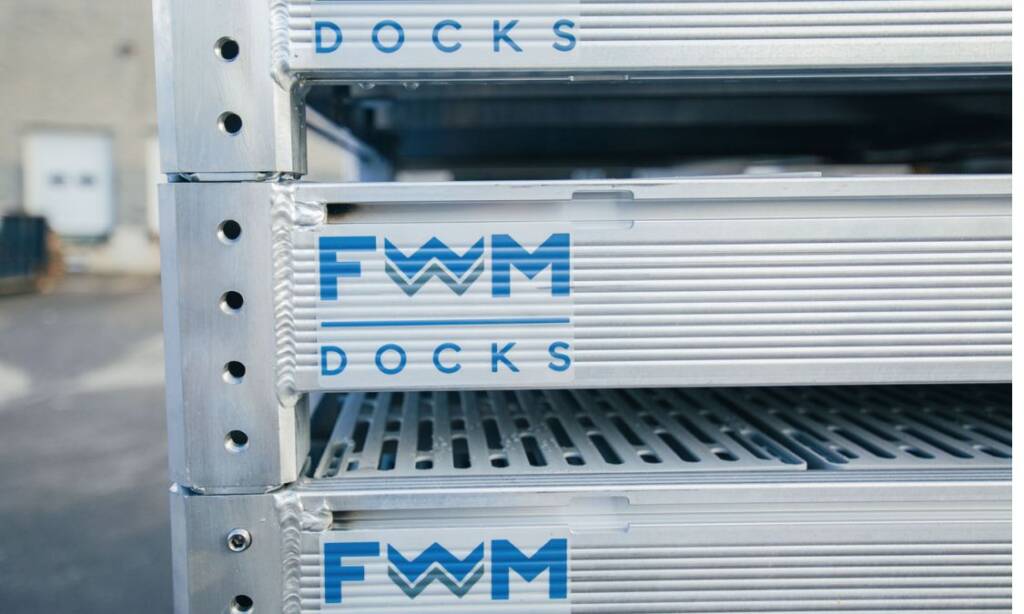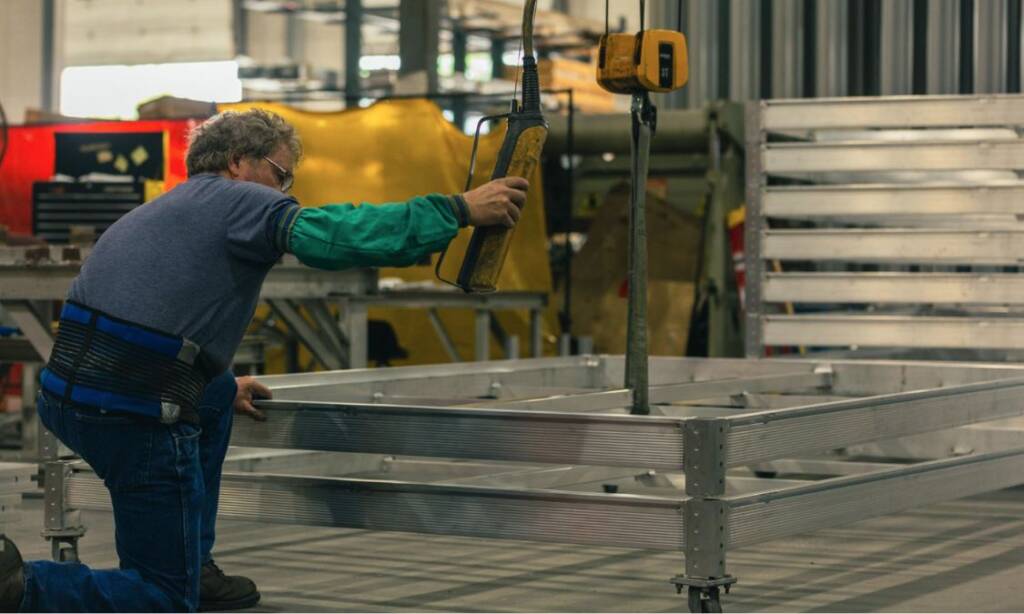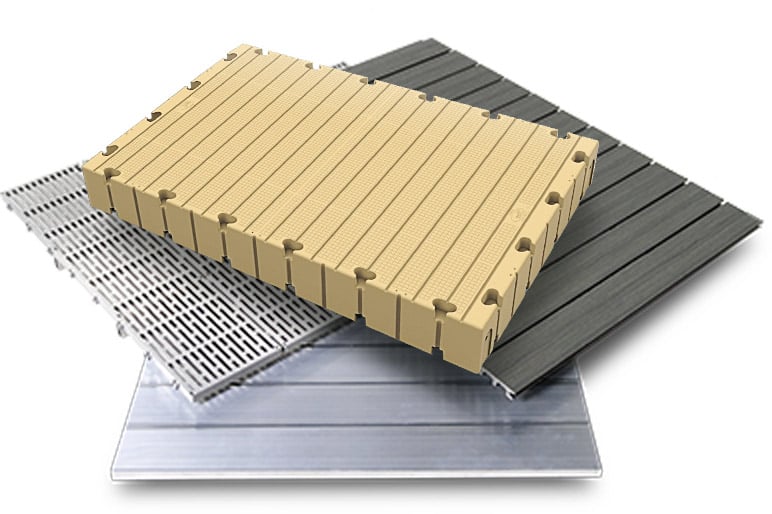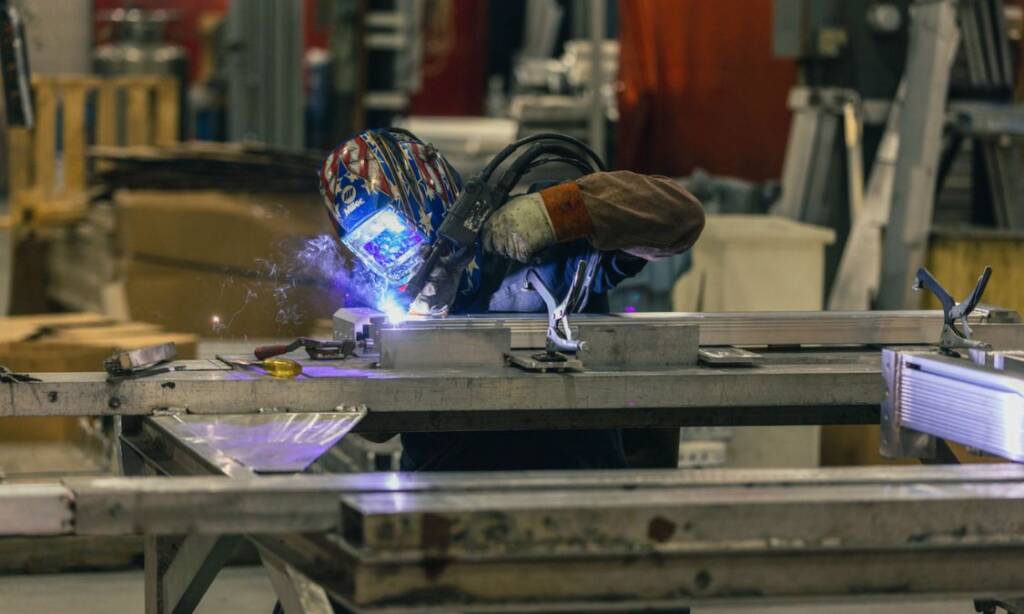Do Aluminum Docks Rust? Why Aluminum Is the Longest Lasting Dock Material
When people start looking for a dock that will actually last, the first question that comes up is:
Do aluminum docks rust?
The short answer is no, aluminum does not rust. That is what makes it unbeatable for waterfronts.
Unlike steel or wood, aluminum holds up for decades without flaking, rotting, or corroding. It is the reason marinas, HOAs, and lakefront homeowners are moving almost entirely to aluminum.
Why Aluminum Does Not Rust
Rust is an iron problem. Aluminum does not contain iron, so it cannot rust.
Instead, it naturally forms a thin, invisible oxide layer that protects it from the elements. The moment aluminum is exposed to air, that layer seals the surface and stops further corrosion.
That is why aircraft, bridges, and marine structures are made from aluminum. It is strong, light, and self-protecting.
For docks, that means no peeling paint, no rot, and no replacing boards every few years. Just solid structure that lasts.

Built to Last: Why Marine Grade Aluminum Wins
The aluminum used at FWM Docks is the same marine grade alloy used in commercial marinas and waterfront infrastructure.
It handles constant moisture, freeze and thaw cycles, and temperature swings without warping or breaking down.
Welded aluminum dock frames do not just resist corrosion. They shrug it off. Once installed, there is almost nothing to maintain beyond a quick rinse once or twice a season.
It is not uncommon for a quality aluminum dock to last 30 to 50 years or more with the same structural integrity it had the day it was built.
Freshwater, Saltwater, and Everything in Between
Aluminum docks perform beautifully in both freshwater and saltwater.
In freshwater, the metal stays virtually untouched.
In saltwater, a good design with welded aluminum, stainless hardware, and smart isolation points keeps it solid for decades.
There is no paint to chip, no coatings to maintain, and no hidden upkeep. Aluminum docks just keep working.

Aluminum vs Other Dock Materials
| Material | Lifespan | Maintenance | Durability | Comments |
|---|---|---|---|---|
| Aluminum | 30–50+ years | Minimal | Excellent | Never rusts or rots |
| Steel | 15–25 years | Moderate | Strong but rust prone | Requires repainting and upkeep |
| Wood | 10–20 years | High | Degrades over time | Rot, splinters, constant sealing |
| Plastic (HDPE/Poly) | 30–40 years | Minimal | Excellent | Flexes, limited structure |
Aluminum combines the best of all worlds: rigidity, light weight, and nearly zero maintenance.
Plastic floats are great for small waterfronts or personal watercraft, but they do not have the same strength or stability.
Wood looks nice for a few years but quickly turns into a maintenance project.
Steel docks rust.
The Practical Advantages of Aluminum Docks
- No rust
- Lightweight and rigid
- No rot, no painting, no sealing
- Welded strength that lasts decades
- Low maintenance, just a quick rinse each season
A properly built aluminum dock is the last dock you will need to buy. You will spend more time on the water and less time maintaining it
Final Word: Aluminum Docks Do Not Rust. They Endure.
If you’re comparing materials for a long-term dock investment, aluminum stands alone.
It’s stronger than wood, lighter than steel, and built to perform for decades with almost no upkeep.
At FWM Docks, every system is engineered, welded, and assembled in Hudson, New Hampshire, then shipped and installed for homeowners, marinas, and waterfront properties across the country.
Our docks are made to last, easy to own, and designed for any environment — from quiet lakes to coastal marinas.
Sign Up for news and Updates

Find the Dock That’s Right For You

Find the Dock That’s Right For You
